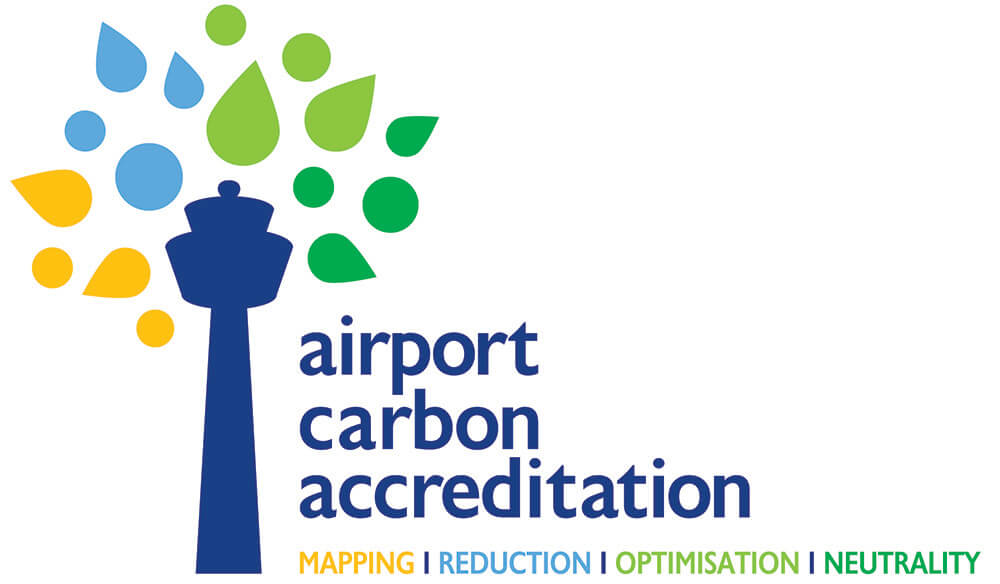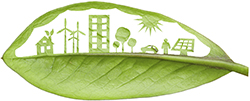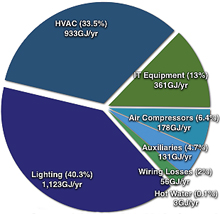News stories
- New aviation and forestry services – Airport Carbon Accreditation and Carbon Farming Initiative
- Governments with a vision – Local councils leading in sustainability
- Our clients have offset… 110,000 tonnes of carbon
- Efficiency grants available – Move now to get the money: Sustainability Victoria
- Partner focus: Steril-Aire
- Team news – Meet Dr Sam Phua
Miss our last newsletter?
New aviation & forestry services
Airport Carbon Accreditation & Carbon Farming Initiative
 We’ve expanded our compliance services and our presence in Brisbane! In January we welcomed Brisbane resident, Dr Sam Phua, to the team. Sam is our lead auditor for services under the Airport Carbon Accreditation (ACA) program and the former Carbon Farming Initiative (CFI) – now Emissions Reduction Fund (ERF). He helps us with the increasing demand for mandatory and voluntary verification and assurance services overall, including National Greenhouse and Energy Reporting (NGER), Energy Efficiency Opportunities (EEO), the Carbon Disclosure Project (CDP), and the National Carbon Offset Standard (NCOS).
We’ve expanded our compliance services and our presence in Brisbane! In January we welcomed Brisbane resident, Dr Sam Phua, to the team. Sam is our lead auditor for services under the Airport Carbon Accreditation (ACA) program and the former Carbon Farming Initiative (CFI) – now Emissions Reduction Fund (ERF). He helps us with the increasing demand for mandatory and voluntary verification and assurance services overall, including National Greenhouse and Energy Reporting (NGER), Energy Efficiency Opportunities (EEO), the Carbon Disclosure Project (CDP), and the National Carbon Offset Standard (NCOS).
Airport verification services
Airport Carbon Accreditation is an Airport Council International (ACI) endorsed carbon emissions management program. It is an institutional accreditation and an industry-specific framework for the greenhouse gas intensive aviation sector. There are four levels to the ACA program. Like Australia’s National Carbon Offset Standard, achieving all four is certification of carbon neutrality for an airport.
Even at level one ACA is a smart business move. Accredited airports are enticing airlines by providing genuinely carbon-managed spaces. It is a way for the airline to reduce the total impact of its own greenhouse gas emissions through more sustainable third party airport providers.
Beyond business-to-business benefits, Airport Carbon Accreditation provides a highly credible sustainability statement for marketing purposes.
Verifying at all levels
Each of the four levels has a verification component. Levels include mapping the carbon footprint; effectively reducing emissions and meeting targets; managing third party emissions as part of the total impact; and achieving neutrality through carbon offsetting.
We provide verifications for all levels. Currently we are working with airports in Australia and the Asia Pacific region.
Forestry audits and assurance
Dr Sam Phua is also leading our scientific team for services under the Carbon Farming Initiative. Sam has an impressive record in the field of carbon origination establishment projects, including the CFI. He was lead author for one of the world’s first Improved Forest Management-Logged to Protected Forests Methodology (IFM-LtPF) under the Verified Carbon Standard (VCS).
CFI is a national carbon offset scheme set to continue under the Coalition Government. The scheme provides income for farmers and landowners who choose to create carbon credits through conservation measures such as sequestration and avoided deforestation.
The Carbon Farming Initiative itself is voluntary, but CFI projects must undergo rigorous audits and assurances before earning a certificate of entitlement.
This is where Pangolin steps in to help. We provide assurance that credits created under a project are certifiable abatement.
Governments with a vision
Local councils leading in sustainability
 Uncertainty looms at a federal level for climate change initiatives already in place. Yet locally we have experienced something rather different.
Uncertainty looms at a federal level for climate change initiatives already in place. Yet locally we have experienced something rather different.
We’ve chosen three Sydney councils, Kogarah, Leichhardt and Randwick, as examples of proactive government acting on climate change. Each has measures well underway, and critically, each has taken steps to implement systems for a better informed, more sustainable future.
Seriously impressive greenhouse gas reduction targets
Kogarah City Council has a mayoral greenhouse gas reduction target for the end of FY 2014 / 2015. This is no 5% by 2020. Set in 2006, Kogarah aims to reduce emissions by 45% (with a 2005 / 2006 baseline).
To that end, we developed a tool to measure progress targets, and to give Kogarah a more comprehensive long-term view. This carbon roadmap allows the council to create policy, plan actions, and evaluate performance with more information at their fingertips. They can track progress and forecast the council’s footprint with greater confidence.
Leichhardt Municipal Council took a different approach. In 2009 Leichhardt established a climate change taskforce with a goal to become carbon neutral under the National Carbon Offset Standard (NCOS). Leichhardt gave themselves three years. They received certification on schedule, 1st July 2012.
Leichhardt is only the second council in NSW and one in five in Australia to achieve NCOS certification. We’re proud to have helped them through the application process, which required a full greenhouse gas inventory and an emissions management plan. Becoming carbon neutral also meant the council needed to offset remaining emissions with carbon credits. Today Leichhardt continues to lower emissions and therefore the offsetting requirements for carbon neutrality.
Investing in energy efficiency
Leichhardt Council has rooftop solar arrays on several buildings, including council administration, childcare centres, sports ovals, and community centres. Impressively, their investment into clean energy extends to a cogeneration facility at the Leichhardt Park Aquatic Centre, where excess heat from generating electricity warms the pool.
Randwick City Council in Sydney’s Eastern Suburbs also prioritises clean energy. A doubling of renewable energy installations across council and community operations is now part of a greater management plan – and getting results. Renewable energy output in 2013 increased from 73 to 150 Kilowatts.
Randwick’s management plan incorporates efficiency projects at the top three energy consuming sites. Their investment into technology also includes voltage optimisation, building management systems, and computer management software. To gauge effectiveness and assist with future decisions, Randwick engaged us to audit these targeted sites.
Too many to list, these are just a few of the many sustainability measures taken by the three councils (and many other councils not mentioned here). While Australia waits to see what happens at a federal level, critically, local governments such as these are setting the standard and engaging their communities in the process.
Our clients have offset…
110,000 tonnes of carbon
 In three and a half years of trading our clients have offset almost 110,000 tonnes of greenhouse gas emissions (precisely 109,809 tonnes as of February 2014). That’s the equivalent of taking over 30,000 cars off the road for a year. It’s an impressive effort and once again we’d like to give our carbon credit clients a pat on the back.
In three and a half years of trading our clients have offset almost 110,000 tonnes of greenhouse gas emissions (precisely 109,809 tonnes as of February 2014). That’s the equivalent of taking over 30,000 cars off the road for a year. It’s an impressive effort and once again we’d like to give our carbon credit clients a pat on the back.
There are many reasons for purchasing carbon credits. Some of our clients do so simply to reduce their own impact on the environment – to offset emissions that they cannot remove through workplace actions. We told you about an educational and particularly heart warming example last newsletter in Rise of the Eco-Warriors (Project Borneo).
Some clients incorporate carbon credits into a sustainability plan, such as making a business, office, product or service carbon neutral. Offsetting is a part of the Australian government’s National Carbon Offset Standard (NCOS), the only government endorsed carbon neutral certification. It is also a component of the Airport Carbon Accreditation program as discussed in this newsletter.
How to purchase carbon credits
Contact us. We provide advice and transparent carbon credit management services. Typically credits support renewable energy and forestry conservation projects in Australia and globally.
Efficiency grants available
Move now to get the money: Sustainability Victoria

Contact us! Funding applications close at 4 pm, Friday 2nd May, 2014.
The Victorian Government is offering up to 50% funding for an energy audit. The initiative, Smarter Resources Smarter Business under Sustainability Victoria, is open to companies with less than 200 employees and an energy spend of greater than $50,000 a year.
We have had great success helping organisations get funding for energy audits in South Australia. If you have business partners, clients or operations in Victoria that qualify, get in touch asap.
The potential benefits of undergoing an energy audit are significant. We typically uncover 20%+ potential savings based on a mixture of site, equipment and operational improvements. Paybacks are usually well under three years.
South Australia grant successes
Read about a few grant successes in SA:
- Bickford’s Australia: expected energy savings of 35.2% per year.
- RM Williams: expected savings of 21% per year.
- Techno Plas: power usage savings of 50 – 60% (on processing of 50% of raw materials).
- Back to top
Parter focus: Steril-Aire
What does the flu and energy efficiency have in common?

 What if you could improve productivity in flu season? What if at the same time you saved on energy costs? We often recommend Steril-Aire’s high output germicidal UVC solutions as part of our Energy Audit recommendations.
What if you could improve productivity in flu season? What if at the same time you saved on energy costs? We often recommend Steril-Aire’s high output germicidal UVC solutions as part of our Energy Audit recommendations.
Cleaner air at Auckland Airport: In keeping with this newsletter, Steril-Aire helped Auckland Airport reduce greenhouse gas emissions when retail space and passenger numbers were on the rise. The airport’s target 5% reduction, reached well ahead of schedule, was largely achieved through HVAC energy efficiency.
Air conditioning had accounted for 77% of Auckland Airport’s total energy consumption so it was a key efficiency target. Steril-Aire provided the UVC coil cleaning and air contamination control Emitters, a major component of the HVAC solution with a payback period of less than two years. The airport met their target, saved on costs, and passengers travel in better health.
Steril-Aire technology is used worldwide for IAQ, HVAC energy conservation, and pandemic protection for commercial buildings, educational facilities, hospitals, food processing, clean rooms, pharmaceutical manufacturing, transportation, hotels and more.
Team news
Meet Dr Sam Phua
 If you’ve read top down, you’ve already met Sam. Dr Sam Phua is our newest team member based in the Brisbane CBD. As well as extensive greenhouse gas, energy assurance and advisory experience, he leads our scientific team into exciting new services. We welcome his expertise in the Airport Carbon Accreditation (ACA) program and Emissions Reduction Fund (ERF).
If you’ve read top down, you’ve already met Sam. Dr Sam Phua is our newest team member based in the Brisbane CBD. As well as extensive greenhouse gas, energy assurance and advisory experience, he leads our scientific team into exciting new services. We welcome his expertise in the Airport Carbon Accreditation (ACA) program and Emissions Reduction Fund (ERF).
Sam holds a Ph.D. in Biochemical Engineering from the University of Adelaide. His specialisations are many, including carbon origination establishment (such as the CFI). He has published extensively for such projects. Sam was lead author for one of the first Improved Forest Management-Logged to Protected Forests (IFM-LtPF) methodologies under the Verified Carbon Standard (VCS). He has also authored numerous scientific papers on climate change, and various government and community environmental schemes and projects.
We also welcome Sam’s contribution to our many other compliance projects. He has in depth knowledge of schemes such as the National Greenhouse and Energy Reporting Act (NGER), Energy Efficiency Opportunities (EEO), Carbon Disclosure Project (CDP) and National Carbon Offset Standard (NCOS).
